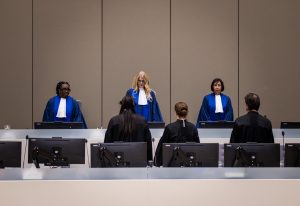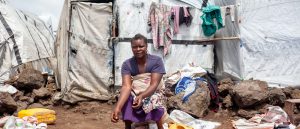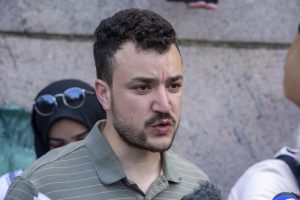By: Lela Lanier
Associate Articles Editor
THE HAGUE, Netherlands—On March 11, 2025, former Philippine President Rodrigo Roa Duterte was arrested in Manila and transferred to the International Criminal Court (ICC) in The Hague. The ICC issued a warrant for Duterte’s arrest for crimes against humanity, including murder, torture, and rape, committed during his presidency. His arrest is a landmark moment for human rights and justice, signaling that impunity for mass atrocities is no longer a given.
 |
Rodrigo Duterte, who served as President of the Philippines from 2016 to 2022, was infamous for his brutal “war on drugs.” Under his leadership, thousands of suspected drug offenders—many of whom were never given due process—were executed extrajudicially. Human rights groups estimate the death toll to be between 6,300 and 30,000, with the poor disproportionately affected. Prior to his presidency, as Mayor of Davao City, Duterte allegedly orchestrated the Davao Death Squad (“DDS”), a vigilante group responsible for at least 1,400 killings. His tenure was marked by his open endorsement of violence, promising to kill criminals and drug users rather than subject them to trial. Despite withdrawing the Philippines from the ICC in 2018, the court-maintained jurisdiction over crimes committed while the country was still a member.
The ICC issued Duterte’s arrest warrant under Article 58(1) of the Rome Statute, which requires reasonable grounds to believe a suspect committed crimes within the court’s jurisdiction and that arrest is necessary. The prosecution established that crimes against humanity, including systematic extrajudicial killings, fall under the jurisdiction of the ICC. Duterte’s leadership of the Davao Death Squad and Philippine law enforcement, along with his public directives to kill drug suspects, provided compelling evidence for his arrest. Testimonies from former police officers and victims’ families further substantiated these claims. Given Duterte’s extensive influence in the Philippines and his previous refusal to cooperate with the ICC, his arrest was deemed necessary to prevent obstruction of justice and to ensure the protection of witnesses.
The ICC Pre-Trial Chamber ruled that Duterte’s arrest was warranted, citing the gravity of his alleged crimes and the absence of any expectation that he would voluntarily appear before the court. The decision reaffirmed the fundamental principle of equal protection under the law—no individual, regardless of status, should be above justice.
Duterte’s arrest carries profound implications. The Philippines has become only the second country in history to arrest and transfer a former head of state to the ICC, setting a significant global precedent. For the thousands of victims denied due process—and for their grieving families—this moment offers renewed hope that justice is possible. More broadly, Duterte’s arrest sends a clear warning to other world leaders with outstanding ICC warrants, including Russia’s Vladimir Putin, Israel’s Benjamin Netanyahu, and Sudan’s Omar Al-Bashir: international justice is slow, but it is relentless.
Duterte’s fall marks a turning point in the fight against impunity. His victims were denied their right to life and due process, but his arrest proves that the rule of law can still prevail.
For further information, please see:
Brookings—Why did the Philippines turn over its former president to the ICC? —1 Apr. 2025
ICC—Situation in the Philippines: Rodrigo Roa Duterte in ICC custody—12 Mar. 2025
ICC—Warrant of Arrest for Mr. Rodrigo Roa Duterte—7 Mar. 2025
New Lines Magazine—Duterte’s Arrest Sparks a Reckoning in the Philippines—2, Apr. 2025



